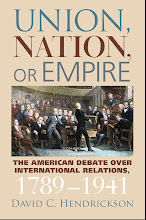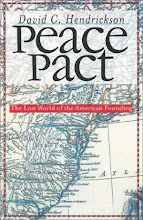Hey college students, let’s talk paper topics.
Here’s one idea: Compare and contrast the diagnoses of the Great Depression offered by Neoclassical economists, Keynesians, monetarists, and the Austrian economists, reading as much of John Maynard Keynes, Milton Friedman, Friedrich Hayek, and Ludwig von Mises as you can. Then speculate on how they would analyze the contemporary crisis and seek to resolve it. Identify their contemporary followers and use them as a guide to this question. This would get you into the deep waters of contemporary economic theory, and it is of vital contemporary importance to figure out which school offers the best interpretation. Infinite variations could be played on this basic paper idea, mixing and matching as you like. What would Schumpeter think? What would Minsky say?
Next topic: Financial regulation. How did it evolve over last two decades, and with what consequences? Assess nature of contemporary market dysfunctions that it is the responsibility of regulatory bodies to mitigate. Assign responsibility for decisions taken, whether for good or ill. Propose sensible reform. There you have your four-part paper. Financial regulation is a big topic--look at this snarl. You could narrow it by centering your investigation on one regulatory body (e.g. Federal Reserve, Securities and Exchange Commission, CFTC). The thing is: you want to keep your focus on that which keeps the entire system viable, so don’t get too narrow minded on me.
There are a few other paper ideas set forth in this presentation, one on housing, another on how public opinion in other countries is interpreting what is going on.
Finally, think about this: Evaluate the response of the Bush administration to the financial crisis. Compare its response to insolvent banks with previous bailouts in the United States and abroad. Identify a template of responses that nations have made to banking crises and assess, respectively, their equity and efficiency. In other words, what is most fair? What solves the problem with the least expenditure of public resources? Then use your conclusions to assess the wisdom of the approach from Bush, Paulson, Bernanke and Cox. If appropriate, suggest an alternative approach tailored to the immediate crisis. On the scale of financial fraud and gross iniquity, of moral turpitude and political corruption, of fatal incomprehension and stark ineptitude, where does it rank? At the bottom? Or at the top?
OK, so it’s a loaded question. Please draw your own conclusions without fear or favor.
11/01/08
skip to main |
skip to sidebar

YOU HAVE EVERY RIGHT TO FEEL THAT WAY.
This blogbook offers, with the aid of various charts, graphs, and tables, a pictorial guide to the 2008 financial crisis.
Navigation
Table of Contents
To see the presentation in order, use either the Labels below for each chapter or the Table of Contents for individual entries.
The initial presentation was made in October 2008 and was last updated in January 2009, though I recently substantially expanded the list of sources. Lately, I have been working on a blogbook called Energy Predicament.
June 2011
To see the presentation in order, use either the Labels below for each chapter or the Table of Contents for individual entries.
The initial presentation was made in October 2008 and was last updated in January 2009, though I recently substantially expanded the list of sources. Lately, I have been working on a blogbook called Energy Predicament.
June 2011
Featured Posts
Labels
- A. Introduction (4)
- B. Financial Stress (19)
- C. Housing Bubble (11)
- D. Debt Binge (14)
- E. Derivatives Jungle (7)
- F. Scale of Losses (7)
- G. Rescues and Remedies (12)
- H. Global Imbalances (6)
- I. Lessons (9)
Top Stops in the Financial Blogosphere
-
-
The reality of a world after rupture11 hours ago
-
-
-
-
-
History of Econ Summer Camp5 days ago
-
This is the End and a New Beginning2 weeks ago
-
I Bid 2025 Adieu3 weeks ago
-
It’s A Google Problem5 weeks ago
-
-
RTO Gets Serious: October 12 years ago
-
-
A Few Quick Announcements2 years ago
-
-
Links 5/7/20223 years ago
-
Thinking Outside the Grid6 years ago
-
-
The rise and fall of bitcoin8 years ago
-
The Blog Moves On8 years ago
-
Learning from Harvey8 years ago
-
Supply-Side Amnesia8 years ago
-
A Trip Through Putin Country8 years ago
-
Surviving America’s Political Meltdown8 years ago
-
Revenge of the Experts8 years ago
-
A Dim Outlook for Trumponomics8 years ago
-
-
-
Thursday Morning Link9 years ago
-
-
-
-
-
-
Q&A: The Fed’s Rate Cut17 years ago
-
-
-
-
-
About Me
I like charts.
I am not a dismal scientist.
My name is David Hendrickson. I teach international relations and American foreign policy at Colorado College.
My dubious record for 2008 is reviewed here, by some miscreants.
I am not a dismal scientist.
My name is David Hendrickson. I teach international relations and American foreign policy at Colorado College.
My dubious record for 2008 is reviewed here, by some miscreants.
FEELING GLUM AND OUT OF SORTS, PERHAPS A BIT ANGRY?

YOU HAVE EVERY RIGHT TO FEEL THAT WAY.
Kudos
A good number of my charts first appeared at Contrary Investor. Though oriented toward investors, CI offers a superb analysis of the real economy and its relationship to the financial system. It is an indispensable source not only for individuals but also for any good library. So subscribe, dammit.

